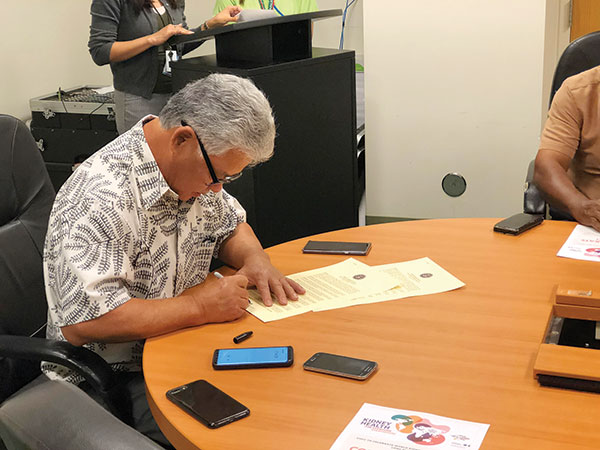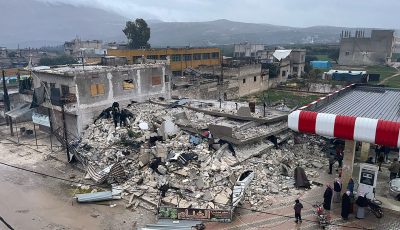‘96 pct. of people with bad kidneys are unaware of it’

Lt. Gov. Arnold I. Palacios signs the National Kidney Month proclamation designation at the Commonwealth Healthcare Corp. yesterday morning. (Erwin Encinares)
Most people with kidney damage or mildly reduced kidney functions are unaware that they have chronic kidney disease, which is usually a complication of Type II diabetes and hypertension.
Numbers cited in yesterday’s proclamation signing for National Kidney Month noted that 96 percent of people with kidney issues are unaware that they have it.
According to the proclamation statistics, at least one in 10 CNMI adults suffer from diabetes while recent data suggests it is closer to 12 percent to 18 percent and over half of the CNMI adult population suffers from hypertension, at 56 percent.
In the U.S. mainland, 30 million people, or 15 percent of U.S. adults are estimated to have chronic kidney disease, while 48 percent of those have severely reduced kidney functions but are not on dialysis.
“I believe we need to get beyond awareness and put together programs and models for our people,” said Lt. Gov. Arnold I. Palacios in an interview with Saipan Tribune after signing the National Kidney Month proclamation yesterday at the Commonwealth Healthcare Corp. “It is amazing and really astounding the statistics on diabetes [and hypertension] here…We really need to do something.”
“We need to get beyond the talk and the noise and just go out to our people,” he said.
CHCC physician Dr. Magdy Maksy, who has been with the corporation for over a year and a half, noted that the hospital has always been there to address health concerns. However, most residents avoid the hospital until the situation is severe and life-threatening.
“It is preventable. If it isn’t, it can be delayed. If you have to have dialysis, you will be better prepared and in a much healthier state,” he said.
According to Maksy, it still baffles him as to why some people wait until their condition is severe before seeking medical assistance at the hospital.
“It may be a cultural factor, maybe they don’t trust the medication, the providers, I don’t know exactly,” he said. “…But we are here to help,” adding that the hospital is equipped to take care of diabetic and hypertensive patients.



























